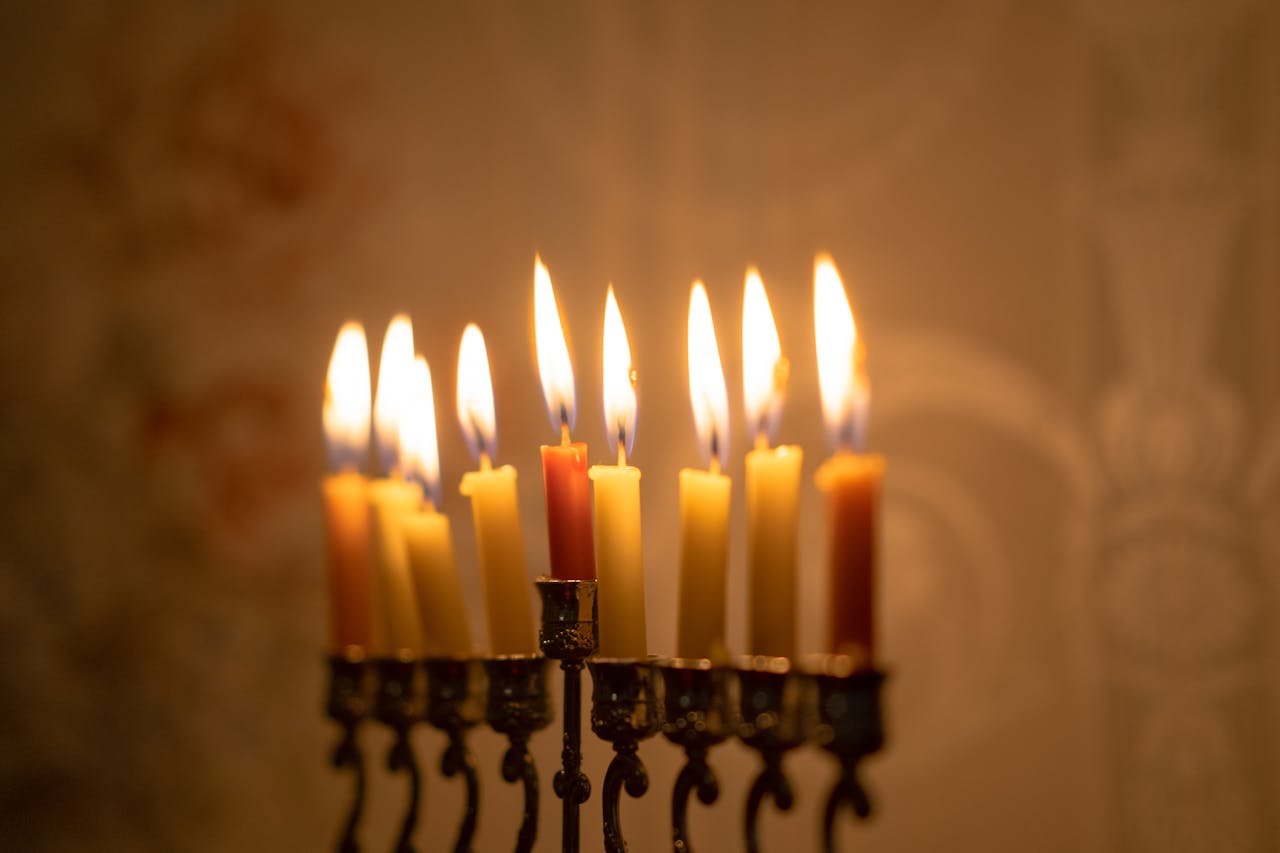Greenstein: L’chayim — to life!
By: Rabbi Micah Greenstein | December 22, 2024
Enter a search request and press enter. Press Esc or the X to close.

Rabbi Micah Greenstein: “There are actually nine spaces for candles on Chanukah menorahs, one for the ‘helper’ candle known as the Shamash candle.” (Image Cottonbro Studio/Pexels.com)
By Micah Greenstein | Guest Columnist | The Daily Memphian
This is a busy time of year for me as a rabbi. Members of my faith community, and many who are not Jewish, seek counsel to share the story of their pain during this so-called “happy holiday” season.
I am not a psychologist, but therapists and psychiatrists I refer to have explained to me that when people take vacations, receive gifts and celebrate with their families, it triggers sad reactions from those who are struggling, not only economically but relationally with family members who don’t get along.
That is why the Jewish holiday calendar, in my opinion, is so brilliant. Three nights from now, Jewish people everywhere will light up the night with the onset of Chanukah. At the darkest time of the year, we Jews strike a match and begin our Festival of Lights.
“A little light,” Jewish mysticism teaches, “drives away much darkness.”
Every good act, every healing gesture, every note of compassion and forgiveness, lights a candle of hope in a dark world.
It has been 20 years since Chanukah began on Christmas night. This year, the eight flames of Chanukah will begin Dec. 25 and not end until the Chanukiyah candelabrum is full Jan. 1.
There are actually nine spaces for candles on Chanukah menorahs, one for the “helper” candle known as the Shamash candle.
It seems like a small thing, but using a candle to light the other candles teaches that we need each other to bring light to this world and we don’t diminish our own light when we help others glow.
The quintessential message of this widely observed Jewish festival, especially in America thanks to Christmas, is this notion of increasing light over darkness, a recurring motif in Judaism.
If God’s first act in the book of Genesis was creating light out of darkness, then perhaps our challenge as humans is to mirror God’s image by recreating light out of whatever chaos surrounds us, no matter what life throws our way.
Judaism holds that the light of the human spirit, the light of hope, the light of love, the light of God — our internal divine “pilot light,” if you will — is unquenchable, insurmountable and eternal.
Choosing light and life is a gutsy thing today, almost a revolutionary idea when you look at the state of our world and nation during such divisive times.
It’s easy to say, “U’v’charta b’chayim” — “Choose life” — when the going is good, but what about when there is discord, natural disaster or any other senseless tragedy we read about or view on our screens?
How can we say, “U’v’charta b’chayim” — “Choose life” — then? Amazingly, in the face of so much death, war and violence, the Jewish people say, “L’chayim!” — “To life!” — no matter what.
As a student of history, I have often marveled how “L’chayim” and Jewish prayers in general were written when my ancestors were persecuted, powerless and penniless.
Nonetheless, they still contended that life has infinite meaning and light can and must pierce the darkness.
From the Maccabees in the Land of Israel to our small Jewish community in Memphis, the seamless thread of the Jewish story is the undying belief in a God who wants us to choose life and create light out of whatever darkness we face.
Just as the small bit of oil the Maccabees found in the ransacked Jerusalem Temple 2,000 years ago seemed far too little yet proved to be more than enough to keep the eternal light aflame, the lesson is that even in our own darkness, there is sufficient light.
Or put differently: Even when it’s darkest, it is always possible to find light.
The Jewish medieval scholar Nachmanides who lived in 13th century Spain taught that every facet of practicing Judaism can be understood as either repairing one’s self or exercising compassion.
That’s why my goal as a rabbi is not simply how to get members of the Jewish community to light Chanukah candles starting this Wednesday night.
My question to my people is rather, “How does lighting the Chanukah candles increase your compassion, self-repair and the spreading of light to others?”
The holiday cards say “Happy Chanukah,” but the greeting in Hebrew is “Chag Urim Sameach” — “Happy Festival of Lights.” Many lights, each of us bringing out the light in others as best we can through everything we say and do.
Happy Chanukah, Merry Christmas and may 2025 bring better days for all as we do our best to increase the light for Memphis, our nation and the world.
This site uses cookies to offer you a better browsing experience. If you continue using our website, we'll assume that you are happy to receive all cookies on this website and you agree to our Privacy Policy.